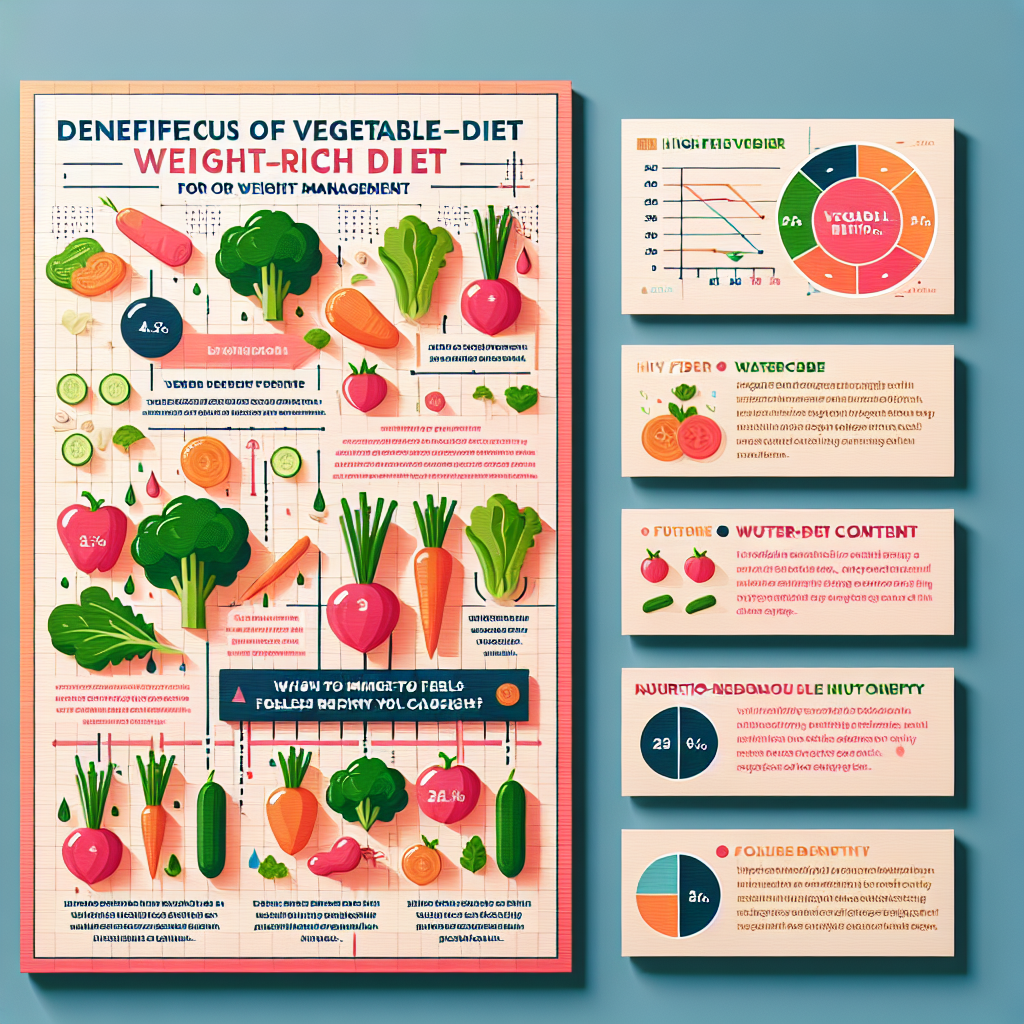Are you looking to shed some extra pounds? Look no further than your friendly neighborhood vegetables! These incredible greens are not only packed with essential vitamins and minerals, but they also offer a multitude of benefits when it comes to weight management. From their high fiber content that keeps you feeling fuller for longer to the low-calorie count that allows you to enjoy a satisfying meal without worrying about overindulging, vegetables are a true ally in your weight loss journey. So let’s delve into the science behind how these humble veggies can help you achieve your desired weight.
Vegetables and Weight Management
Introduction
If you’re looking to shed some pounds or maintain a healthy weight, incorporating vegetables into your diet is a fantastic way to achieve your goals. Not only are vegetables packed with essential nutrients, but they also offer a multitude of benefits that can support your weight management journey. In this article, we will explore eight reasons why vegetables are a valuable tool when it comes to achieving and maintaining a healthy weight.
1. High in Fiber
One of the primary ways in which vegetables aid in weight management is their high fiber content. Fiber is a type of carbohydrate that is not easily digested by the body. When you consume fiber-rich vegetables, it adds bulk to your diet without adding excessive calories. Additionally, high-fiber foods take longer to digest, making you feel fuller for longer periods. This can help reduce overeating and prevent unnecessary snacking, ultimately supporting weight loss or maintenance.

2. Low in Calories
Another remarkable aspect of vegetables that makes them perfect for weight management is their low-calorie nature. Many vegetables, such as leafy greens, cucumbers, and zucchini, are incredibly low in calories while providing a wealth of essential vitamins and minerals. By incorporating more of these low-calorie options into your meals, you can create a calorie deficit, which is crucial for weight loss. Furthermore, the low-calorie content of vegetables means you can enjoy larger portions without worrying about exceeding your calorie limits.
3. Boost Satiation
Being able to feel satisfied and full after a meal is vital for weight management, and vegetables excel in this aspect as well. Their high fiber content and volume contribute to a feeling of satiety, helping you curb unnecessary snacking or indulging in calorie-dense foods. By including a generous amount of vegetables in your meals, you can ensure that you feel satisfied without consuming excess calories, giving you better control over your weight.

4. Provide Essential Nutrients
Weight management shouldn’t be solely focused on calorie intake. It’s also crucial to ensure that your body is receiving an adequate amount of essential nutrients. Vegetables are powerhouses when it comes to providing a wide array of vitamins, minerals, and antioxidants that support overall health and well-being. By incorporating diverse vegetables into your diet, you’re not only nourishing your body but also maintaining optimal nutrition while managing your weight.
5. Aid Digestion
Maintaining a healthy digestive system is important for weight management, and vegetables play a significant role in supporting digestive health. Vegetables are high in dietary fiber, which promotes regular bowel movements and prevents constipation. When your digestion is functioning smoothly, it helps prevent bloating and discomfort, allowing you to feel lighter and more energetic. By including vegetables in your meals, you’re providing your body with the necessary fiber to keep your digestive system in top shape.

6. Help Control Blood Sugar Levels
Controlling blood sugar levels is crucial for weight management, especially if you have or are at risk of developing conditions such as diabetes or insulin resistance. Many vegetables have a low glycemic index, meaning they don’t cause a rapid spike in blood sugar levels. By incorporating these vegetables into your diet, you can stabilize your blood sugar levels and prevent sudden cravings or energy crashes. This steadiness in blood sugar helps regulate your appetite and supports weight management efforts.
7. Rich in Water Content
Hydration is often overlooked when it comes to weight management, but it plays a vital role in overall health and weight maintenance. Many vegetables have a high water content, which helps keep you hydrated while also contributing to a feeling of fullness. By choosing vegetables like cucumbers, tomatoes, and leafy greens, you’re not only adding vital nutrients but also increasing your daily water intake. Staying hydrated can help you fend off unnecessary snacking and promote a healthy metabolism.

8. Promote Healthy Gut Bacteria
Maintaining a healthy gut is increasingly recognized as a vital component of overall health, and vegetables can contribute to a flourishing gut microbiome. Vegetables contain prebiotic fibers, which act as fuel for the beneficial bacteria in your gut. By nourishing these bacteria, you create an environment that supports healthy digestion, absorption of nutrients, and even a strengthened immune system. A healthy gut microbiome is not only beneficial for weight management but also for your overall well-being.
Conclusion
Incorporating a variety of vegetables into your diet is a smart and tasty way to support your weight management goals. From being high in fiber to low in calories, vegetables provide numerous benefits that can aid in achieving and maintaining a healthy weight. Additionally, their ability to boost satiation, provide essential nutrients, aid digestion, control blood sugar levels, hydrate the body, and promote a healthy gut microbiome makes them an invaluable addition to any balanced diet. So, don’t forget to embrace the vibrant world of vegetables and witness the positive impact they have on your weight management journey.


